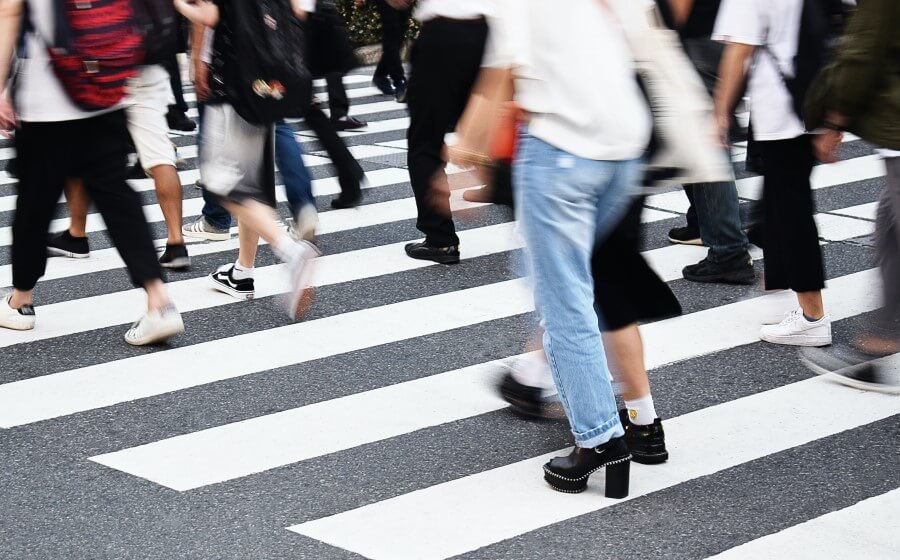Rebecca Riley highlights some of the threats and opportunities that Birmingham and other cities face in the future.
This blog post was produced for inclusion in the Birmingham Economic Review for 2021.
The annual Birmingham Economic Review is produced by the City-REDI, University of Birmingham and the Greater Birmingham Chambers of Commerce. It is an in-depth exploration of the economy of England’s second city and a high-quality resource for informing research, policy and investment decisions.
This post is featured in Chapter 1 of the Birmingham Economic Review for 2021, on Birmingham’s economic recovery and resilience following the coronavirus crisis.
Click here to read the Review.
Since the publication of the last Birmingham Economic Review, we have been carrying out work in the region and city to look at wider global trends and their impacts. The work has highlighted clear cross-cutting issues for the future based on trends we were already seeing.
Threats for the future
There will be a continued perception of fear of return to the city for some time, for some people, this could lead to continued levels of reduced visitors, audiences and workers. The lower footfall in places will continue to impact businesses, footfall dropped by 46% over the 12 months to June. This could mean ongoing difficulty with the return of retail and hospitality to levels of 2019. The considerable effects of the pandemic on people, risk high levels of mental health impacts preventing re-engagement and return to normal. The delayed return of footfall to centres will lead to longer-term reduced public transport demand, this risks the provision of accessible transport in the future and achieving the climate change goals the city has set.
The reduced employee footfall into offices and flexible working, although little signs of this yet, could trigger a reduction in the office space demand in the city. In the long term, this could affect the investments reliant on high property incomes such as pensions. Although as yet no signs of this, it could destabilise the economy and more significantly those that reply on pensions. This in turn could reduce spending and incomes for a significant proportion of the population, for many years to come. This reduced city centre working also has implications for the geography of work and implications for places in terms of where people spend their income and what they spend it on.
Over the pandemic, we have seen that a lack of skills and take-up of digital and technology is leaving people behind as the world’s adoption of technology has been accelerated through the necessity of contactless working and shopping. This could lead to structural changes which leave many people unable to access new jobs, services and activities in the long term. High unemployment and long periods of furlough have affected those in retail, hospitality, sports and culture roles, impacting on availability and productivity of the workforce and a return to jobs. We have seen people switch sectors for more security and the lack of students and overseas workers in cities are constraining businesses in these sectors, longer-term this could create constraints for the city in attracting people back. This could also affect the return of tourism in general, but specifically for Birmingham business tourism which is also still suffering due to moving online, reduced international travel and impact on the business professional services sectors and those sectors which need international travel to support sales and growth.
There is a real risk of increased segregation of place, making inclusivity a greater challenge. The structural changes to work could lead to greater inequality and reduced social mobility as jobs become more inaccessible because of technology, transport and skills accessibility risks.
Opportunities for the future
However, the pandemic has also created opportunities to be built on. The pandemic has increased demand for green, open space and events, which could boost the attractiveness and investment in spaces in the city. It’s an opportunity to grow the events, culture and hospitality sectors into new areas.
There is an increased awareness of sustainability and the importance of local suppliers and employment, which is a trend that started before the pandemic but accelerated as people shopped more locally. This could drive greater investment and spending in local suppliers and businesses if capitalised on, especially if they can be supported to move online as many have already.
The increased awareness of physical and mental health and the advantages of exercise will, if sustained, improve the wellbeing of the city. Greater awareness is changing the way businesses interact and engage with employees, improving the long term relationship, investment in employees’ leads to productivity improvements and greater employee engagement. If this is supported by the continued increase in modal shift of travel, to walking and cycling the benefits will continue.
There is considerable pent up demand and spend capacity in the economy. Barclays is predicting the economy will grow at its fastest since 1948 and they estimate an extra £200bn sitting in customer and company bank accounts, and although there is a considerable risk in debt for those who have lost income, Barclays have not raised their predictions for debt default. Consumer spending could drive a boom in retail, culture and hospitality providing it meets the growing trend for increased experiential offers. It could revitalise struggling sectors and drive the opening up of the region nationally and internationally.
 Business models have adapted and innovation has accelerated, with businesses more likely to have a mindset to take advantage of opportunities, technology and innovation, this creates an environment more open to change and improvement. The growth in digital and technology usage and implementation, application and adaption has increased alternative options for activities, diversification in business models and income generation, greater opportunity for engagement, the skills base has expanded and created more capability and capacity to adapt.
Business models have adapted and innovation has accelerated, with businesses more likely to have a mindset to take advantage of opportunities, technology and innovation, this creates an environment more open to change and improvement. The growth in digital and technology usage and implementation, application and adaption has increased alternative options for activities, diversification in business models and income generation, greater opportunity for engagement, the skills base has expanded and created more capability and capacity to adapt.
The potential of 15-minute cities bringing services closer together and more local travel will have an impact on climate planning and business corporate social responsibility as travel times are reduced, there is greater use of online communication and services are closer to the customer. Increased flexibility and employment opportunities closer to home, enable people to cope with care responsibilities, businesses to tap into a wider, more diverse, labour market and skill set.
The impact of the pandemic has also shifted the emphasis to broader life considerations, sustainability and place attractiveness in a holistic sense. Cities, like Birmingham, will need to adapt to these emerging issues, mitigate the risks and take advantage of the opportunities.
This blog was written by Rebecca Riley, Business Development Director, City-REDI / WMREDI, University of Birmingham and Head of Research and Office for Data Analytics (ODA), WMCA.
Disclaimer:
The views expressed in this analysis post are those of the authors and not necessarily those of City-REDI or the University of Birmingham.


